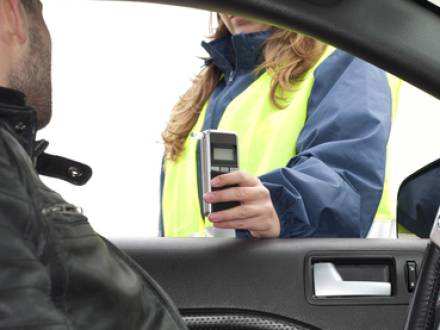What Happens in an Out-of-State Illinois DUI Arrest?
 Traveling to another state can be exciting and interesting as you see new things and perhaps meet new people. Getting arrested for DUI in another state can spoil your vacation or business trip and is just about as messy a situation as you might imagine. If you were arrested in Illinois and charged with DUI, you are likely wondering whether you will have to come back to the state for a trial, what the penalties will be, and whether it will show up on your record in your home state.
Traveling to another state can be exciting and interesting as you see new things and perhaps meet new people. Getting arrested for DUI in another state can spoil your vacation or business trip and is just about as messy a situation as you might imagine. If you were arrested in Illinois and charged with DUI, you are likely wondering whether you will have to come back to the state for a trial, what the penalties will be, and whether it will show up on your record in your home state.
Regardless of whether you are a resident of Illinois, the state takes DUI charges seriously, and the consequences can be significant. You are right to be worried. However, the best thing you can do right now is to speak to a highly experienced Naperville, IL DUI lawyer who can provide you with information about how this will affect your driving privileges in your home state and handle your DUI in Illinois.
What Is the Interstate Driver’s License Compact (IDLC) and the Non-Resident Violator Compact (NRVC)?
The IDLC is an agreement between 45 states, excluding Michigan, Wisconsin, Georgia, Massachusetts, and Tennessee. If you are not from one of those five states, you can expect to have your license suspension enforced in your home state.
The NRVC enforces fines and court appearances in other states. If out-of-state drivers break laws in participating states, the NRVC can suspend your driver’s license for non-payment of fines or failure to appear for a court date.
What Will Happen Immediately After Your Illinois DUI Arrest?
Whether you are an Illinois resident or not, your driving privileges may be suspended almost immediately, depending on which state you are from. As an out-of-state driver, the state of Illinois will report the DUI arrest to your home state.
Depending on your home state’s laws and agreements with Illinois, your license could be suspended there. The length of your driver’s license suspension would generally be between six months and one year. If your home state is part of the Interstate Driver’s License Compact, then your suspension will be enforced there.
If you have no other DUI offenses on your record, you will face a fine from $500 to $2,500. A DUI conviction can potentially carry a sentence of up to one year in jail, but many first-time offenders receive probation instead of jail time.
If you are sentenced to probation, you may have to attend a DUI education program. In-state drivers are subject to up to 240 hours of community service; out-of-state drivers are also subject to community service hours, but that will depend on whether you plead guilty or fight your DUI charges.
How Can Your Illinois DUI Lawyer Help?
Having a highly skilled Illinois DUI lawyer means the evidence against you can be challenged. This includes the results of your field sobriety tests and the breathalyzer test results. If the officer had no probable cause to pull you over in the first place, your Illinois DUI attorney may be able to get your DUI charges dropped or could negotiate with the state to reduce the charges or penalties.
Since you may not be in the state for the entire process, your lawyer can represent your interests in court, saving you the time, money, and inconvenience of traveling back and forth to Illinois. If you are required to attend a court hearing or pay fines and do not do so, you will face additional penalties in Illinois and your home state.
Once the Illinois suspension is over, you will be required to go through a process to have your license reinstated in your home state, which will include proof of completion of any court-ordered DUI education or treatment programs, reinstatement fees, and proof of insurance.
Contact a DuPage County, IL DUI Lawyer
Since your driver’s license is at stake, not to mention the many collateral consequences associated with a DUI conviction, it is important to speak to a knowledgeable Naperville, Illinois DUI attorney from Appelman Law LLC. Attorney Appelman has a proven track record and unwavering dedication to his clients. To schedule your free consultation, call 630-717-7801.





